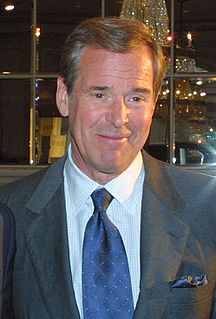A Quote by Oscar Isaac
I think Shakespeare really got it. He was the first one to introduce psychology to villains and give them a real point of view.
Quote Topics
Related Quotes
I've always wondered if people who block each other from expressing their opinions do so because they have so little confidence in their own. To me, encountering an opposing point of view is a chance to gain a deeper understanding of the issues at stake and develop my own point of view. But the first thing you've got to do is you've got to let people speak and you've got to listen. And that's what the first amendment is all about. That's what really distinguishes this country from others.
'Transparent' was huge for me when I first saw it. I felt that, from an authorial point of view, no one was trying to sell characters to us, you know? It's the idea of not having to adore these characters and want to cuddle them; you just have to be into them and their psychology and be compelled by them.
[On how she goes about trying to live authentically] Well really listening to my point of view and if I am on a set, say, that doesn't really value a woman's point of view, regardless of how they feel, continuing to give my point of view and try to find a way to be heard and not diminishing myself because other people are diminishing me. Because that, I think, is the worst temptation that, you know, you judge yourself by how others are judging you, and to fall into that trap is to walk into the realm of self-annihilation.
It's a movie, OK? I went to see GONE WITH THE WIND, but did I really believe there was a guy named Rhett Butler who said, "Frankly, my dear, I don't give a damn"? No. Movies need heroes and villains, and real life doesn't usually have heroes and villains. Real life has a lot of shades of gray, and moves have black and white even when they're in color.
In my view, philosophers have shown a great deal more respect for the first-person point of view than it deserves. There's a lot of empirical work on the various psychological mechanisms by way of which the first-person point of view is produced, and, when we understand this, I believe, we can stop romanticising and mythologising the first-person perspective.


































